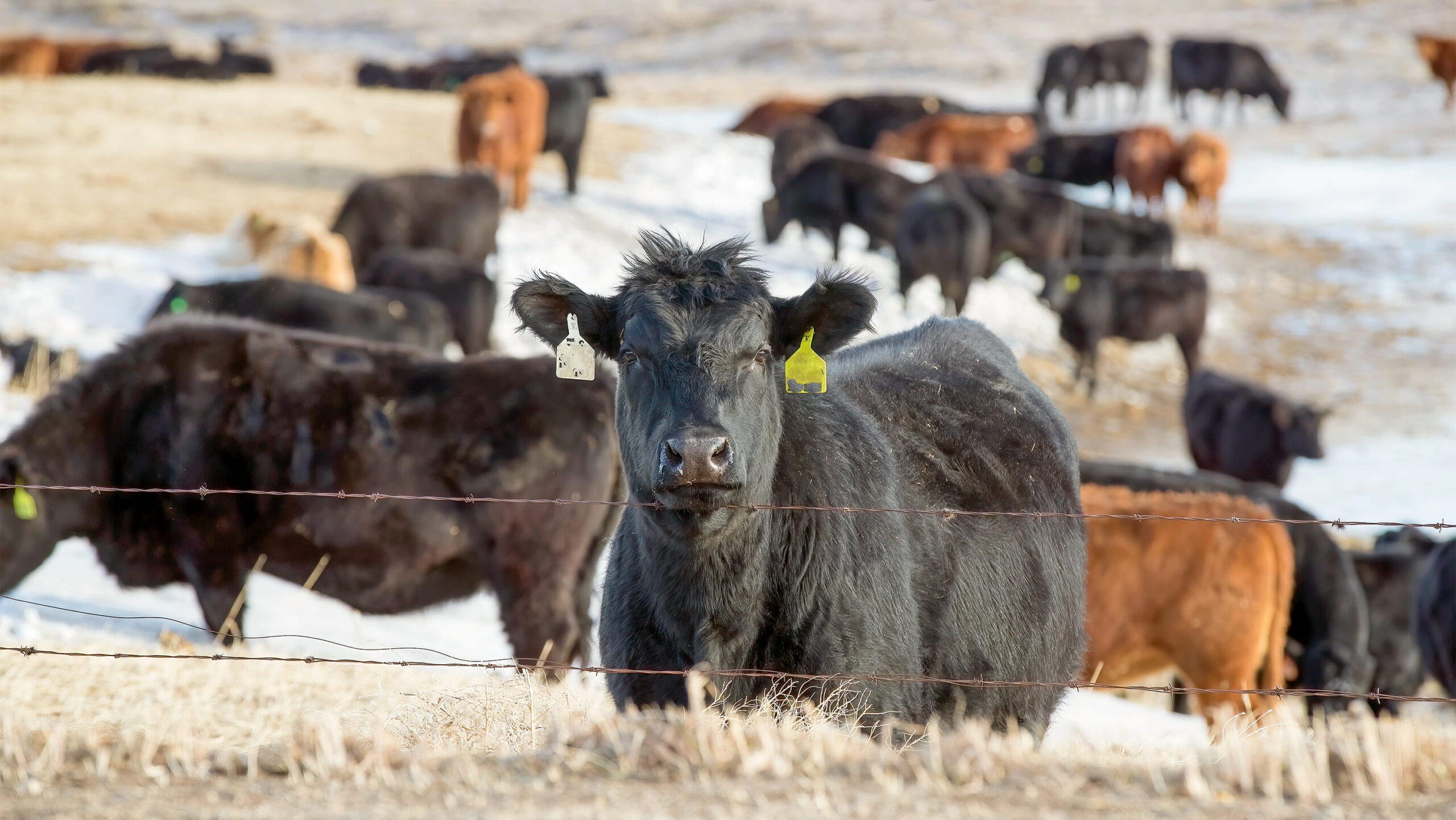Using more than 2,300 beef cattle in the field, including from the Roy Berg Kinsella Research Ranch, the researchers are using an emissions monitoring system to measure methane breathed or burped out by the animals as they feed on treat pellets.
Along with that, they’re teaming up with European researchers experimenting with near infrared spectroscopy, a common lab tool known as NIRS, to analyze the animals’ manure. The same tool, focused on the mid-infrared spectrum, has been used to analyze milk from dairy cattle, but this is the first time any kind of infrared spectroscopy is being used on beef cattle fecal samples in Canada at a large scale to develop molecular breeding values for methane emissions, Basarab notes.
If the NIRS method proves successful, it provides a valuable proxy for fast, cheap and high-throughput measurement of methane emissions, he adds.
“To get a proper representation of methane emissions coming from just one animal takes at least 30 days, so to measure thousands of beef cattle would take a long time. Using NIRS, we could potentially get a value for those emissions in as little as a few days.”
Together, the measurements from the feeding experiments and the fecal analysis will provide the large amounts of data needed to calculate accurate breeding values “and allow producers to pick cattle that have, by inheritance, lower methane emission rates,” Basarab says.
The trait would then be added to existing DNA-based multi-trait selection indexes commercialized by Livestock Gentec, a research centre co-founded by the U of A, Alberta Agriculture and Agriculture and Agri-Food Canada.The addition would help round out indexes that already include desirable traits for superior growth, feed efficiency, carcass quality and female fertility.
“We’d be able to offer the producer a way to select for an animal that balances all of these qualities,” says Basarab, who also serves as CEO of Livestock Gentec.
Generating interest in genomics
The project is also looking at ways to increase adoption of genetic selection on commercial farms.
Fewer than 20 per cent of commercial cow-calf producers in Canada are currently using genomics, due to the high cost of genotyping their animals for various traits, which can be up to $52 per head.
Nor do commercial beef producers have a clear signal from feedlots or packers as to whether genetic selection improves the end price they get for their cattle, Basarab notes.
“The industry is segmented into different groups that don’t seamlessly share data back and forth, so producers often don’t know why their cattle get a certain price.”
To make genetic selection a more worthwhile tool to producers, a carbon offset protocol will be developed through the project in partnership with Viresco Solutions, an environmental consulting firm. While such protocols exist for the feedlot and crop industries, there is nothing specifically for cow-calf producers, notes Basarab.
Used to quantify greenhouse gas emission reductions, an offset protocol means producers with lower-GHG cattle could register and sell their carbon credits to large final emitters, such as utility companies.
“That puts money in the producer’s pocket directly, and can help them make a profit.”
The project will also work with an advisory committee of industry experts to develop beneficial management practices for using genetic selection, which will then be piloted on 50 Canadian commercial beef farms.
Along with that, the beef producers taking part in the pilot project will be interviewed to better understand obstacles to using genetic selection, and what strategies might be helpful, Basarab says.
“They can give us advice on how the technology can be practical for their industry, so the adoption of it is more likely.”
The beef cattle industry is already reducing GHG emissions through other measures, such as grazing management to sequester carbon in grasslands, but is always looking for other ways to be more sustainable and environmentally friendly, Basarab adds.
“Our work will help the beef industry become more resilient and profitable, and it helps agriculture last for future generations.”













